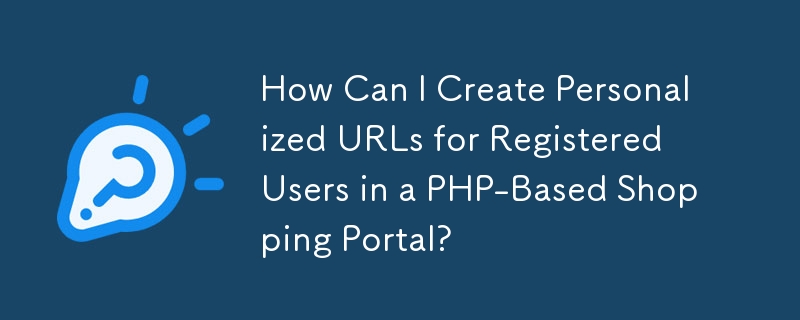

Creating Personalized URLs for Registered Users Using PHP
In a shopping portal where customers list and sell their products, it's essential to provide separate URLs for each user to showcase their offerings. This is similar to how Facebook creates unique URLs for individual profiles.
Solution:
To implement this feature in PHP, follow these steps:
Configure Server Routing:
Determine User Identifier:
Template Selection:
Database Query:
Dynamic URL Generation:
MVC (Model-View-Controller) frameworks can simplify the implementation of this process, particularly for steps 2 and 3, by handling request routing and providing tools for template selection.
The above is the detailed content of How Can I Create Personalized URLs for Registered Users in a PHP-Based Shopping Portal?. For more information, please follow other related articles on the PHP Chinese website!




